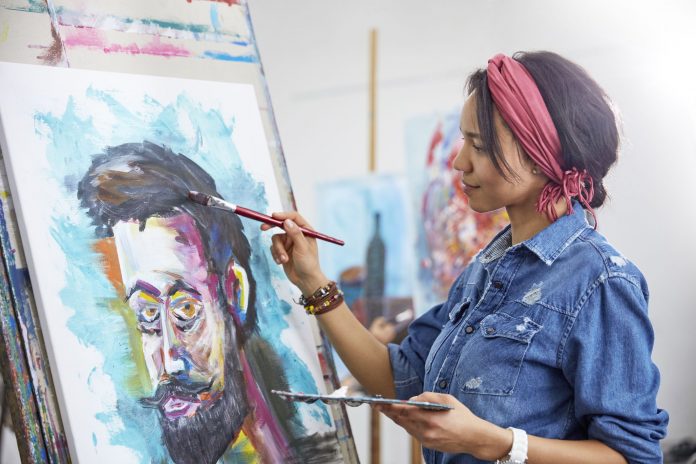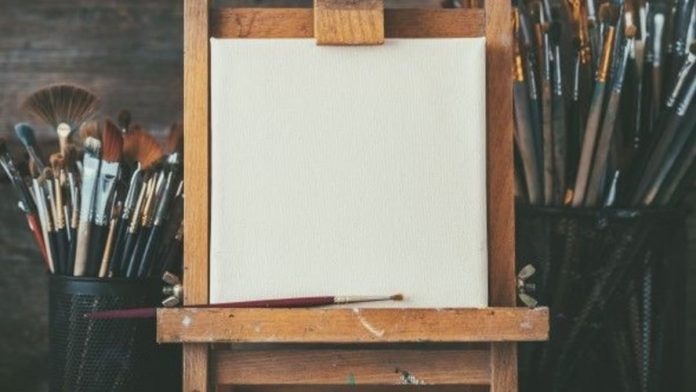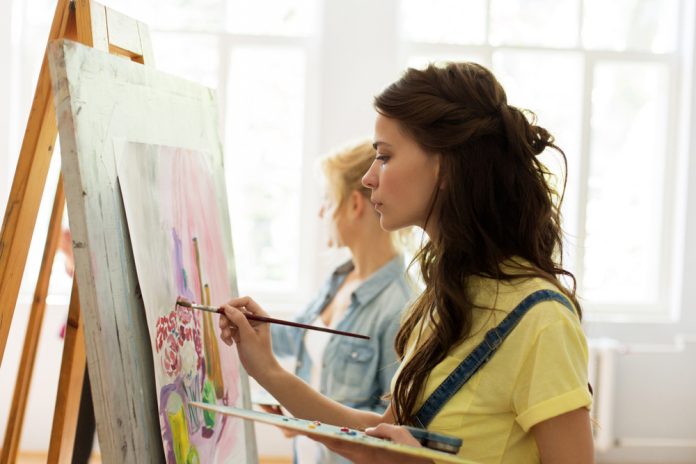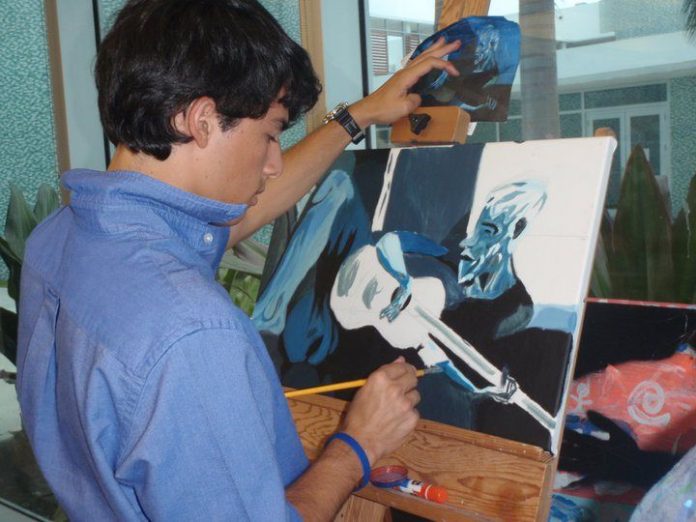This year of isolating boredom has been the perfect opportunity to use your spare time and put your painting skills into further practice. Whether you’re a novice newbie wanting to kickstart their painting journey or an amateur who’s always dabbled but never shone, now really is the best time to pick up a paintbrush and start creating.
However, it’s easy to paint a pretty picture of how great it will be for you to practice your skills; actually putting your plans into action and mastering the art form is a different kind of story. So if you’re the type of person who’s too hard on themselves and feels like they’re yet to find their painting prowess, here are some of the best tips on how to paint like a professional and continue working towards your first masterpiece.

Remember everyone starts somewhere
Being able to paint like a professional may take some time. But just know that every great artist must have started somewhere. If you’re feeling overwhelmed and disappointed by your first few attempts, try to think smaller with your ambitions. You could even begin by trying out a justpaintbynumber.com set. Get comfortable with your own initial capabilities first and then try out new things before you put any pressure on yourself.
Get the right supplies
One of the single most important tips is to get the best art supplies. Depending on the types of paints you’ll be painting with and the tricks and techniques you’ll be using, start by heading to an art store and investing in the very best resources. The fact is higher-quality paints will always produce richer and more vibrant colors that will naturally make your painting stand out amongst others.
Never stop practicing

Artist’s block is a very real and very frustrating situation painters often find themselves stuck in, but the trick is to never give up. Even when your motivation has plummeted and your inspiration has been lost to the angst of seemingly never reaching your full potential, just keep painting! The more you learn from your mistakes and the more time you spend finessing your techniques, the better painter you’ll eventually become.
Focus on composition
The subject of your painting should be looked at as a collection of shapes rather than a physical object. Whether it’s a portrait or landscape, take your time and paint as you see. Take notice of perspective and composition by starting your painting off as a rough sketch to make sure your lines and angles are where they should be in the bigger picture.
Study the art industry

If you’re serious about the potential of turning your hobby into a career, it’s also important that you tap into your inner academic and think like an expert. The art industry is a whole other world of inspiration. Studying the history of art can provide essential knowledge on the different art movements that have taken place over the years, which can in turn help you find the methods of painting you love the most. Read some helpful art books and visit galleries of renowned artists to really engage in the subject.
Be bold and brave
If you’ve got somewhat of a conceptual idea for a painting in your head, the biggest challenge you’ll face is getting past the first hurdle of actually starting. There’s nothing more daunting and confusing than a blank white canvas, even for the most experienced artists out there. Be courageous when it comes to creatively putting your plan to paper, and remember you can always paint over a mistake!
Let loose and take risks
As soon as you feel confident in your basic painting skills, it’s time to start taking new risks. Always be open to try out new methods and think outside your own self-restrained box. For example, if your piece looks boring, turn your canvas upside down. If a certain shadow falls one way, paint it another. Start working against the grain and you’ll find your own groove outside of expectations. There are no limits to what you can create.
Tap into your emotions
The very best paintings may well come from deep within, so pay attention to how the artform makes you feel. Painting is very much an expression of your mood, thoughts, and emotions, so never feel like you need to hold back when completing a piece. Lean into your feelings and express yourself through the different brush strokes and colors you want to use. Don’t be afraid to get messy!

Enjoy the ongoing process
Although having a successful end product is the ultimate goal, remember to enjoy the process along the way too. Painting can be a soulful experience when you relax and stop worrying too much about what the piece looks like to others. Instead, shift your focus to the pleasure you’re feeling from getting creative, and remember that the process can be a wonderful form of therapy to improve your mood and mental health.
Set up your own workspace
With the importance of using painting as a form of self-care, it’s also ideal if you set up a personal workshop that benefits you. Find your zen in the painting space you’ve made and make it your haven of happiness and creativity. Stick on your favorite music whilst you paint and choose the time of day that inspires you most. Another top tip is to position your area towards a window with a great view; there’s nothing more uplifting than a gorgeous sunrise or sunset.
Teach others what you know
It’s always beneficial to start teaching others what you know; that way you might realize how much you’ve learned and how far you’ve come in your own painting journey. Pass on your knowledge and you’ll feel like the expert. If you’re feeling extra confident and want to be even more inspirational, you could even set up your own painting classes or groups to motivate others in improving their skills.









